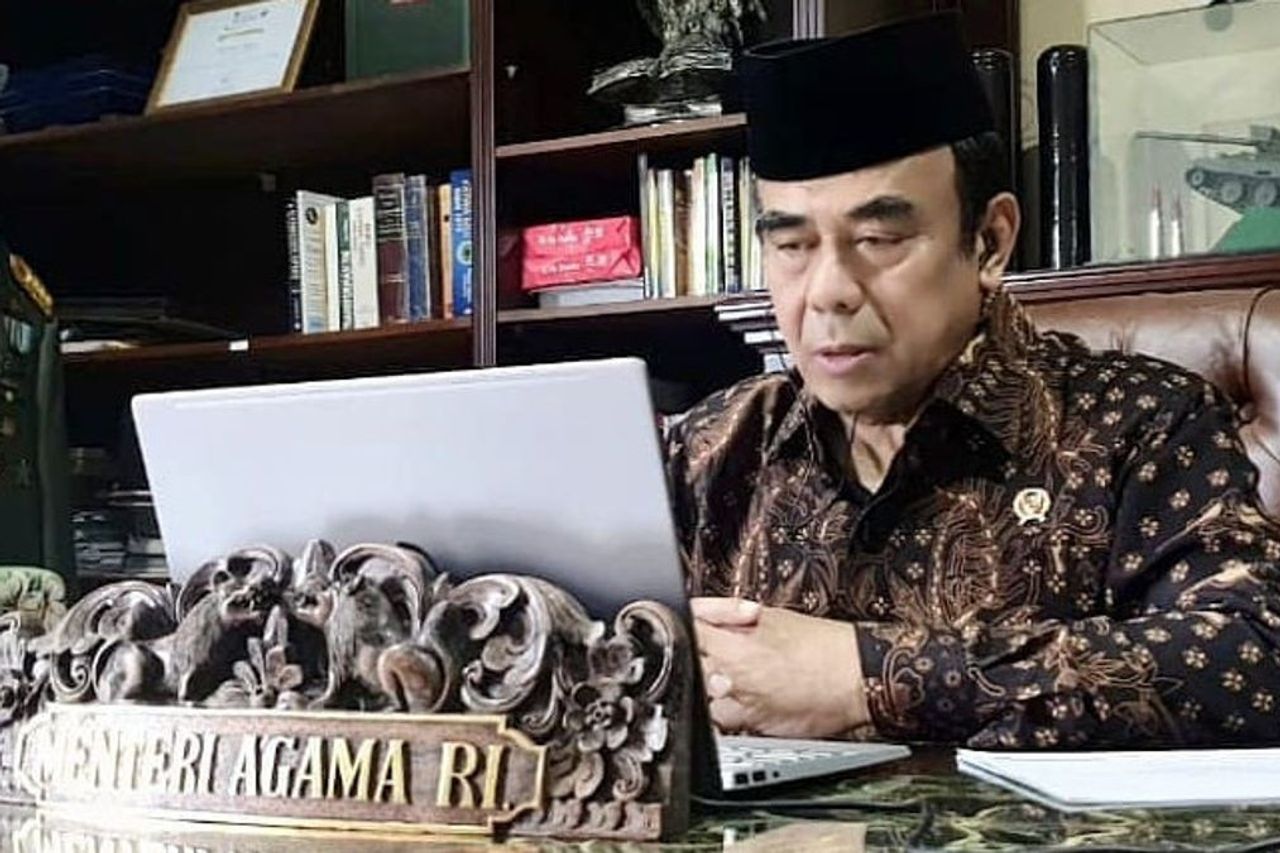Many Communities Protest Houses Of Worship Closed During The COVID-19 Pandemic

JAKARTA - Minister of Religion (Menag) Fachrul Razi said that many people protested when houses of worship were closed during the COVID-19 pandemic. The community protested because they considered the closure of these places of worship an unfair step because not all areas were affected by this virus.
"So far, there have been lots of complaints, sir, it is very unfair, unfair. There are cases at the district level, some people have contracted diseases. But the district is 50 kilometers from us, there is nothing in us. pray ', "said Fachrul when meeting with the DPR RI's COVID-19 Task Force on Thursday, May 28.
Thus, the Ministry of Religion agreed to provide opportunities for local governments up to the sub-district level to make their own decisions regarding places of worship so that protests like this would no longer occur.
He also emphasized that the Ministry of Religion would soon announce a health protocol to reopen places of worship in the midst of a new normal situation. The plan, this protocol will be announced on tomorrow, Friday, May 29.
"Why Friday afternoon, because what is rather complex is preparing for Friday prayers. So, if Friday afternoon we announce there is still one week to prepare for the following Friday," said Fachrul.
One of the issues that will be discussed in the health protocol is the need for places of worship to write an appeal for the public and for children who are sick to not come to places of worship.
"As an example there is an inscription, 'father, mother not feeling well? Please don't enter the house of worship' parking lot, "he explained.
In addition to such recommendations, Fachrul also reminded a number of other health protocols such as wearing masks, maintaining distance, and recommending hand washing must also be carried out in places of worship if they are opened later.
Meanwhile, regarding the reopening of the pesantren, Minister of Religion Fachrul said that his party did not want to be careless in making decisions.
He said the government is currently asking for input from related parties regarding pesantren in which areas are considered safe to resume teaching and learning activities. In addition, the Ministry of Religion will also check readiness by sending teams to several pesantren later.
"The Ministry of Religion will send a team to check its readiness, especially from the aspect of maintaining distance. We ask which input is ready. Because there are several Islamic boarding schools that will open on the next 10 June," he said.
Muslims are required to return to Friday prayersIn connection with the opening of places of worship in the midst of new norms, Secretary of the MUI Fatwa Commission Asrorun Niam Sholeh emphasized that Muslims who are in areas that are safe from the spread of COVID-19 are again required to carry out Friday prayers.
"With this condition, it means that there are no more udzur syar'i who abort Friday prayers. And therefore, based on the factual conditions described by competent and credible experts, Muslims living in controlled areas are obliged to carry out Friday prayers. its implementation, "said Asrorun in his written statement.
Moreover, continued Asrorun, currently there are areas where there is absolutely no transmission and have been under control from the start. According to him, there are 110 districts and cities consisting of 87 mainland areas and 23 archipelagic regions where there are no positive cases of COVID-19. However, he did not mention which areas he meant.
So, under these conditions, according to the MUI Fatwa Number 14 of 2020, Muslims are required to hold Friday prayers and worship activities that involve large crowds, such as congregations praying five times a day, tarawih prayers and Eid al-Fitr prayers in mosques or other public places, and attend public recitation. and majelis taklim.
However, in its implementation, people need to keep themselves from being exposed to COVID-19. "Muslims maintain their health, have a clean and healthy lifestyle, bring their own prayer mats, and implement health protocols in order to maintain health and prevent transmission," he said.
He also said, there are some things that can be adapted to the new normal situation like now. "First, do the new normal permanently such as PHBS, online-based zakat, almsgiving. Some are still in a temporary condition, such as maintaining distance during worship. There are those who return to the old, such as the procedures for implementing mahdlah worship obligations," he concluded.
